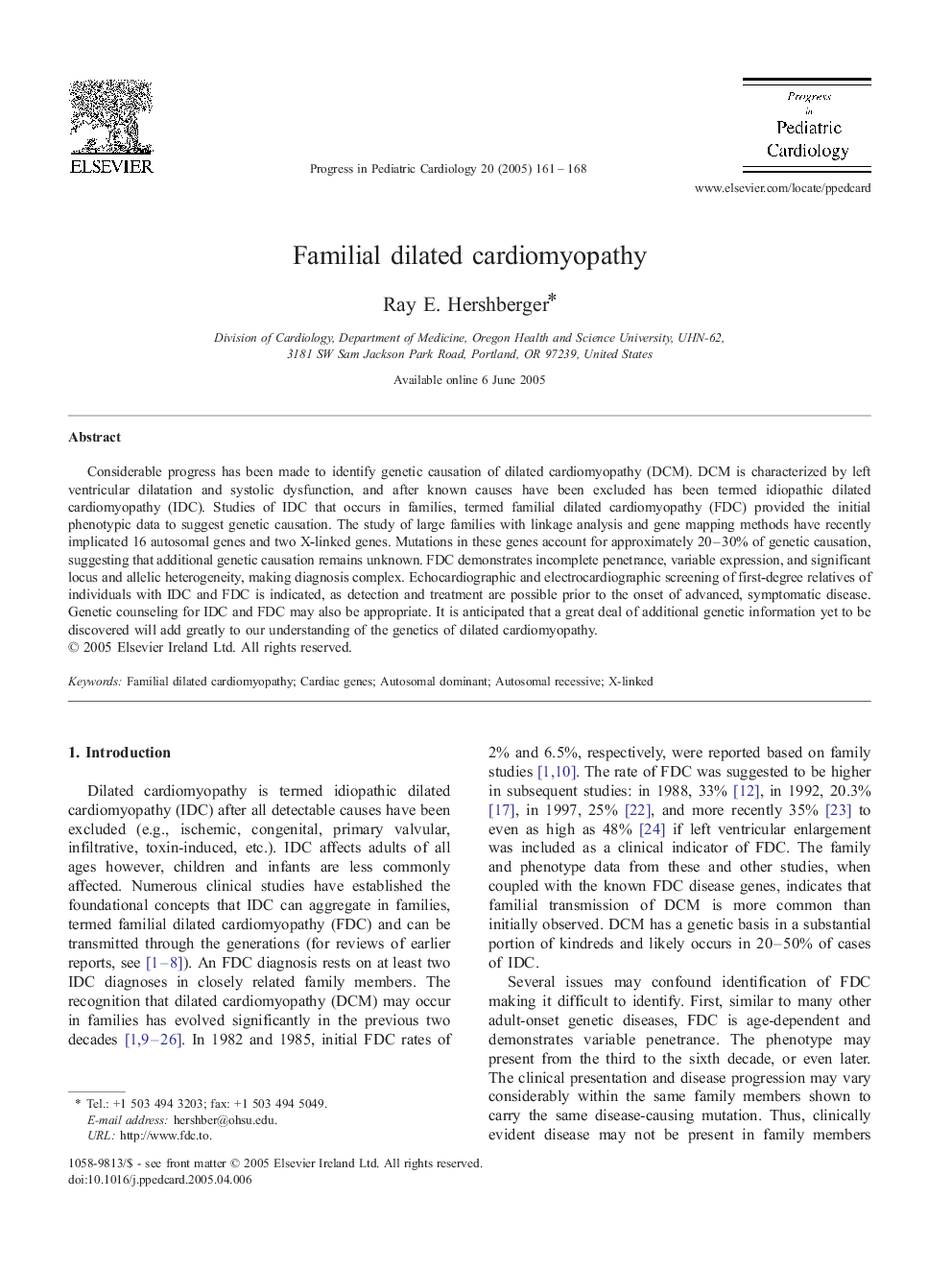| Article ID | Journal | Published Year | Pages | File Type |
|---|---|---|---|---|
| 9179166 | Progress in Pediatric Cardiology | 2005 | 8 Pages |
Abstract
Considerable progress has been made to identify genetic causation of dilated cardiomyopathy (DCM). DCM is characterized by left ventricular dilatation and systolic dysfunction, and after known causes have been excluded has been termed idiopathic dilated cardiomyopathy (IDC). Studies of IDC that occurs in families, termed familial dilated cardiomyopathy (FDC) provided the initial phenotypic data to suggest genetic causation. The study of large families with linkage analysis and gene mapping methods have recently implicated 16 autosomal genes and two X-linked genes. Mutations in these genes account for approximately 20-30% of genetic causation, suggesting that additional genetic causation remains unknown. FDC demonstrates incomplete penetrance, variable expression, and significant locus and allelic heterogeneity, making diagnosis complex. Echocardiographic and electrocardiographic screening of first-degree relatives of individuals with IDC and FDC is indicated, as detection and treatment are possible prior to the onset of advanced, symptomatic disease. Genetic counseling for IDC and FDC may also be appropriate. It is anticipated that a great deal of additional genetic information yet to be discovered will add greatly to our understanding of the genetics of dilated cardiomyopathy.
Related Topics
Health Sciences
Medicine and Dentistry
Cardiology and Cardiovascular Medicine
Authors
Ray E. Hershberger,
